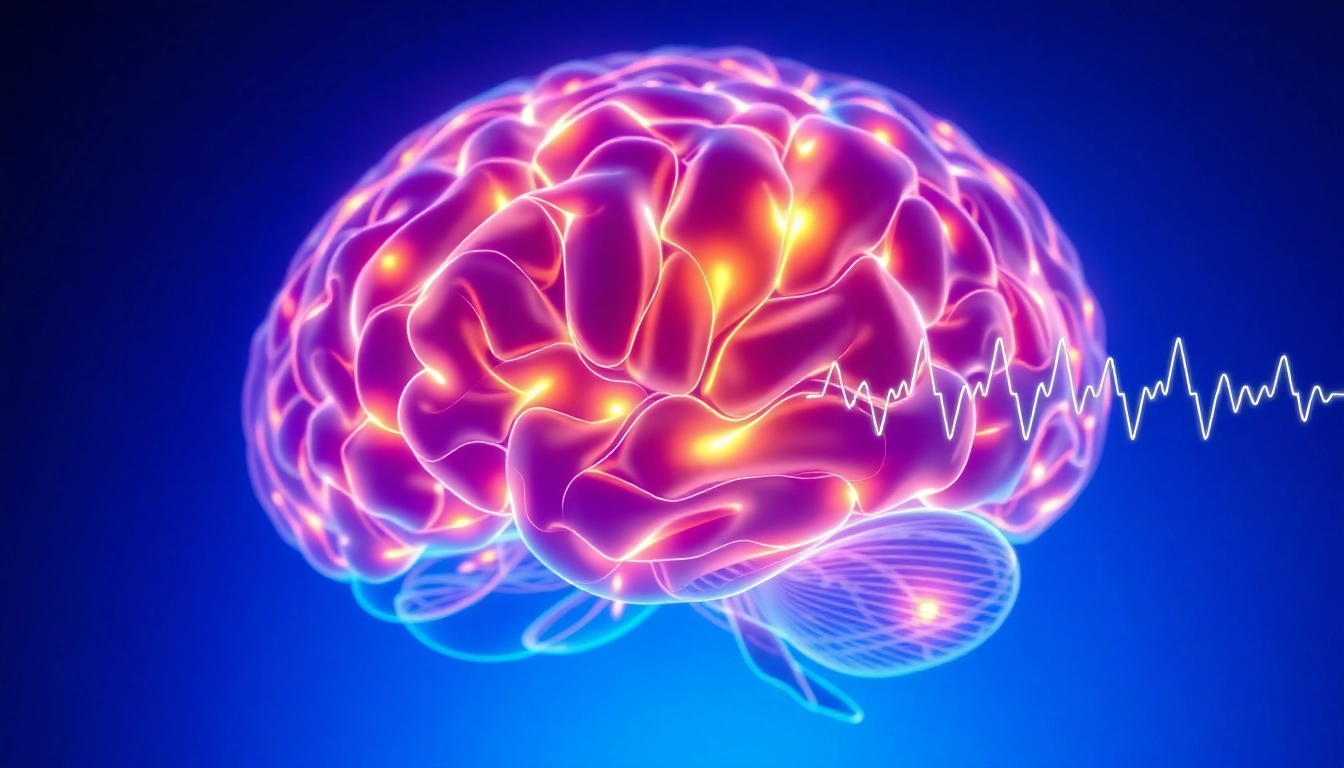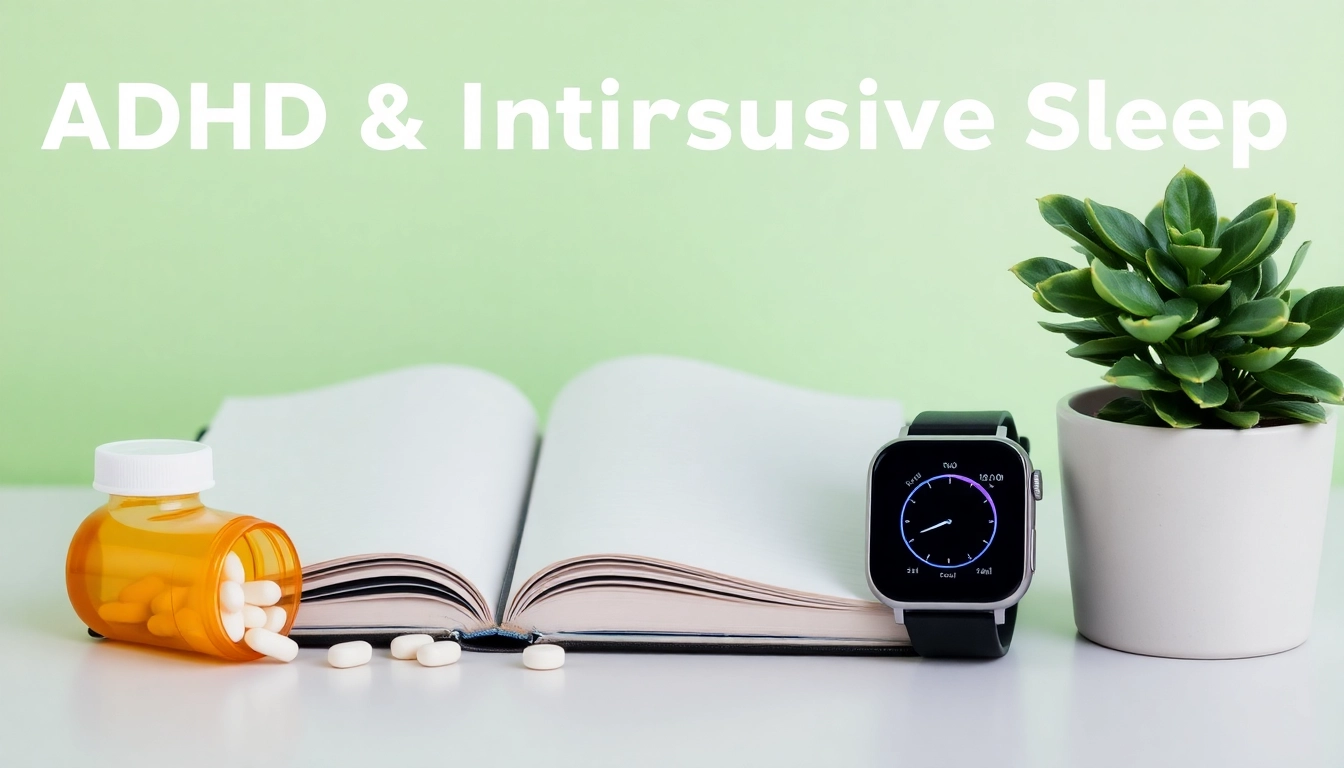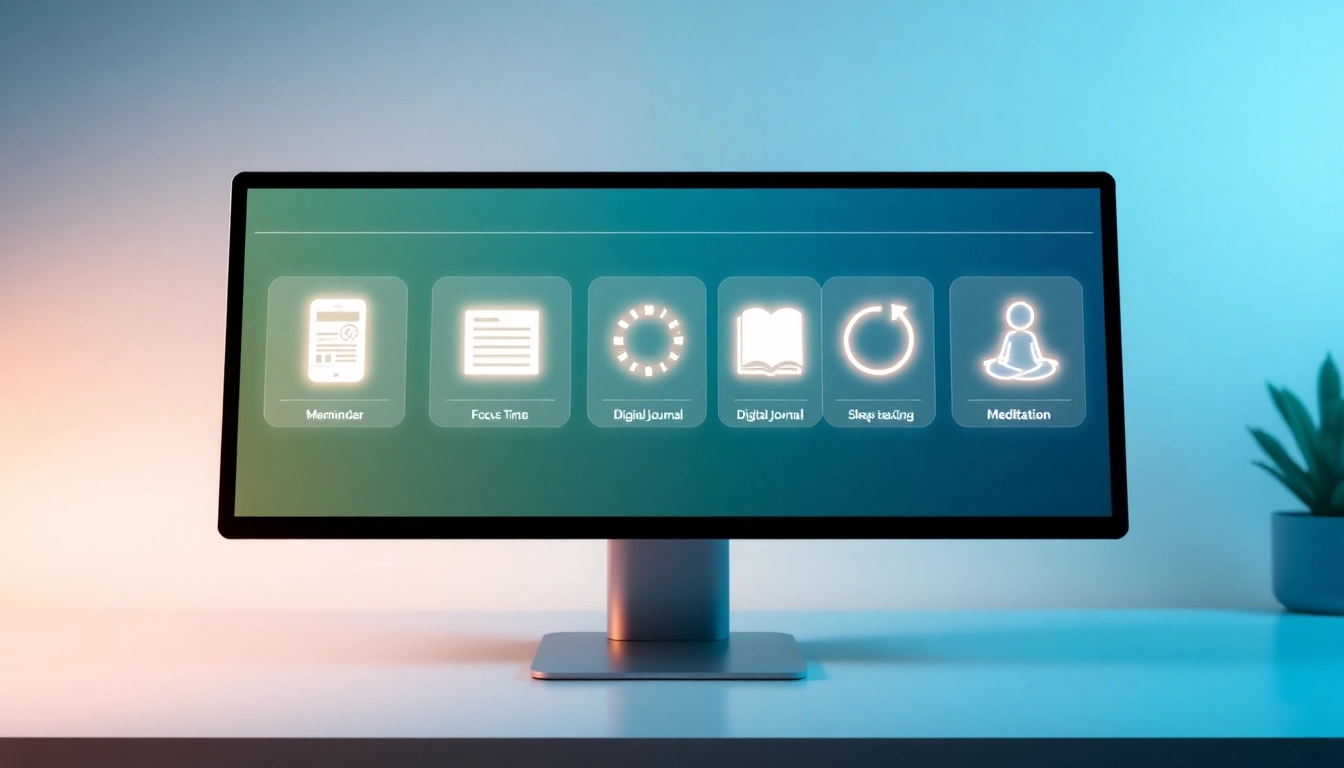ADHD Intrusive Sleep: Understanding and Managing the Issue
Are you struggling with ADHD intrusive sleep? This frustrating phenomenon can have a significant impact on your daily life, making it challenging to manage your ADHD effectively. ADHD sleep problems are more common than you might think, affecting many individuals who grapple with attention deficit hyperactivity disorder. Understanding and addressing these sleep disruptions is crucial to improving your overall well-being and productivity.
In this article, we'll explore the concept of ADHD intrusive sleep and its underlying causes. You'll learn about the effects it has on your daily functioning and discover practical ADHD rest strategies to help you achieve better sleep. We'll also delve into the science behind these sleep disturbances and provide you with valuable tips and techniques to manage your symptoms effectively. By the end, you'll be equipped with the knowledge and tools to tackle your sleep issues and enhance your quality of life while living with ADHD.
What is ADHD Intrusive Sleep?

Definition
ADHD intrusive sleep is a phenomenon commonly associated with Attention-Deficit/Hyperactivity Disorder (ADHD), where individuals experience sudden and overwhelming drowsiness or even fall asleep abruptly. This occurs when your nervous system disengages due to a loss of interest or boredom in the current activity. It's important to understand that this is not simply falling asleep but rather a sudden loss of consciousness triggered by a lack of stimulation.
Symptoms
The symptoms of ADHD intrusive sleep can be quite distinct and potentially disruptive to your daily life. You might experience:
- Sudden extreme drowsiness
- Abrupt sleep onset, even in inappropriate situations
- Difficulty staying awake during monotonous tasks
- Bedtime resistance
- Trouble with morning awakenings
- Sleep-disordered breathing
- Night awakenings
- Daytime sleepiness
These symptoms can manifest in various settings, from the classroom to the workplace, and even while driving, which can be particularly dangerous.
Causes
The causes of ADHD intrusive sleep are complex and multifaceted. Research suggests that it's closely tied to the way the ADHD brain processes interest and stimulation. When you're engaged in an activity that interests you, your ADHD symptoms may not be apparent. However, when you lose interest, your nervous system can disengage rapidly, leading to this intrusive sleep phenomenon.
Additionally, ADHD is often associated with various sleep disorders, which can contribute to or exacerbate intrusive sleep symptoms. These may include:
- Obstructive sleep apnea
- Peripheral limb movement disorder
- Restless legs syndrome
- Circadian-rhythm sleep disorders
It's crucial to note that while ADHD intrusive sleep is a recognized issue, its occurrence can be challenging to study in laboratory settings due to the specific conditions required to trigger it. This makes it all the more important for you to be aware of your own sleep patterns and potential triggers if you have ADHD.
Understanding ADHD intrusive sleep is the first step in managing it effectively. By recognizing the symptoms and potential causes, you can work towards developing strategies to improve your sleep quality and overall well-being.
The Science Behind Intrusive Sleep in ADHD

To understand the complex relationship between ADHD and intrusive sleep, it's essential to explore the underlying brain mechanisms. Research has revealed fascinating insights into how ADHD symptoms and sleep disturbances are interconnected at a neurological level.
Brain Wave Patterns
Studies have shown that individuals with ADHD often experience unique brain wave patterns that contribute to sleep disturbances. One notable phenomenon is the sudden intrusion of theta waves into the alpha and beta rhythms of alertness. This intrusion can lead to the abrupt disengagement of the nervous system, resulting in extreme drowsiness or even sudden sleep onset.
The brain regions involved in this process include:
- Middle frontal gyrus
- Inferior frontal gyrus
- Amygdala
- Striatum
- Insula
Research has found that lower gray matter volumes in these areas are associated with both ADHD symptoms and sleep disturbances. This structural difference in the brain may explain why you might experience sudden drowsiness or difficulty staying awake during monotonous tasks.
Neurotransmitter Imbalances
Neurotransmitter imbalances play a crucial role in both ADHD symptoms and sleep regulation. The brain regions implicated in ADHD and sleep disturbances show differential gene expression related to neurotransmission and circadian entrainment. This means that the chemical messengers in your brain responsible for attention, arousal, and sleep regulation may not function optimally.
Key points to consider:
- ADHD symptoms significantly mediate the link between structural brain abnormalities and sleep dysregulation.
- The relationship between ADHD and sleep problems is complex and multidirectional.
- There's a functional and neuroanatomical overlap between brain regions involved in attention, arousal, and sleep regulation.
Understanding these scientific aspects can help you to better comprehend why you might experience intrusive sleep with ADHD. It's not simply a matter of being tired or bored; there are genuine neurological factors at play.
It's worth noting that ADHD is frequently coincident with various sleep disorders, including:
- Obstructive sleep apnea
- Peripheral limb movement disorder
- Restless legs syndrome
- Circadian-rhythm sleep disorders
These conditions can further complicate your sleep patterns and exacerbate ADHD symptoms. Recognizing the interplay between ADHD and sleep disturbances is crucial to developing effective management strategies.
Impact on Daily Life

ADHD intrusive sleep can have a profound effect on various aspects of your daily life. From your performance at work or school to your relationships and personal safety, the consequences of this sleep disorder can be far-reaching and significant.
Work and School Performance
When you struggle with ADHD-related sleep issues, your ability to function effectively during the day can be severely compromised. About three-fourths of adults with ADHD report difficulty falling asleep at night, which can lead to daytime fatigue and reduced productivity. This fatigue can manifest as:
- Trouble paying attention at work or school
- Difficulty processing information
- Increased hyperactivity
- Irritability and mood swings
You might find yourself feeling grumpy, restless, or excessively tired throughout the day. These symptoms can be mistaken for mood disorders, potentially complicating diagnosis and treatment. Moreover, sudden bouts of extreme drowsiness can occur, especially during monotonous tasks, making it challenging to maintain focus and complete assignments.
Relationships
The impact of ADHD intrusive sleep extends beyond your personal struggles, affecting those around you as well. Your restless sleep patterns might disturb your bed partner, potentially leading them to sleep separately. This can strain intimate relationships and create tension in the household.
Additionally, the effects of poor sleep quality can spill over into your social interactions. You might find yourself:
- More irritable in conversations
- Less patient with friends and family
- Struggling to maintain focus during social activities
It's important to note that these sleep-related issues don't just affect you; they can also have a significant impact on your family members and caregivers. Research suggests that primary caregivers of children with both ADHD and sleep problems are more likely to experience depression, anxiety, and increased stress levels.
Safety Concerns
Perhaps one of the most critical impacts of ADHD intrusive sleep is on your personal safety and the safety of those around you. The sudden onset of extreme drowsiness can be particularly dangerous in certain situations:
- While driving
- Operating machinery
- During activities requiring high levels of concentration and alertness
You might find yourself falling asleep at inappropriate times, which can be both embarrassing and hazardous. It's crucial to be aware of these risks and take necessary precautions to ensure your safety and the safety of others.
Understanding the wide-ranging impact of ADHD intrusive sleep on your daily life is the first step toward managing it effectively. By recognizing how it affects your work, relationships, and safety, you can begin to develop strategies to mitigate these effects and improve your overall quality of life.
Management Strategies

Managing ADHD intrusive sleep requires a multifaceted approach that addresses both behavioral and environmental factors. By implementing effective strategies, you can improve your sleep quality and overall well-being.
Behavioral Techniques
Establishing a consistent sleep routine is crucial for managing ADHD-related sleep issues. About 75% of adults with ADHD report difficulty falling asleep at night. To combat this, consider the following techniques:
-
Create a bedtime routine: Develop a 30-60 minute routine that you follow every night at the same time. This can include activities like taking a warm bath, reading a book, or drinking herbal tea.
-
Practice relaxation techniques: Incorporate meditation, yoga, or deep breathing exercises into your nightly routine to help calm your mind.
-
Avoid stimulating activities: Instead of watching TV or scrolling through social media, engage in non-stimulating tasks like folding laundry or preparing for the next day.
-
Exercise regularly: Aim for at least one hour of moderate to vigorous exercise per day. This can be broken down into four 15-minute bursts if that's more manageable for your schedule.
Environmental Adjustments
Creating a sleep-friendly environment can significantly impact your ability to fall asleep and stay asleep. Consider these adjustments:
-
Control your climate: Experiment with room temperature to find what works best for you. Many people find a cooler room more conducive to sleep.
-
Minimize light exposure: Turn off screens at least an hour before bedtime and use dim lighting in the evening. Consider using sunset/sunrise-simulating lights to help regulate your circadian rhythm.
-
Create a calming sleep space: Keep your bedroom dark, quiet, and free from distractions. Use a white noise machine if necessary to block out disruptive sounds.
-
Use a weighted blanket: Some individuals find that weighted blankets help promote better sleep.
Medication Considerations
While medication can be an effective tool for managing ADHD symptoms, it's essential to consider its impact on sleep. Here are some medication-related strategies:
-
Timing of stimulant medication: Some adults with ADHD find that taking a dose of stimulant-class medication 45 minutes before bedtime can help calm restlessness and promote sleep. About two-thirds of adult patients take a full dose of their ADHD medication every night to fall asleep.
-
Explore non-stimulant options: Consider discussing alternative medications with your doctor, such as:
- Benadryl (25 to 50 mg) taken about one hour before bed.
- Melatonin supplements (1 mg or less) to help regulate sleep patterns.
- Clonidine (0.05 to 0.1 mg) one hour before bedtime.
-
Adjust medication schedules: Work with your healthcare provider to optimize your medication schedule. Some people report improved alertness throughout the day when taking their medication about an hour after waking up.
-
Consider sleep studies: If sleep disturbances persist, your doctor may recommend a sleep study to identify any co-existing sleep disorders that may require additional treatment.
Remember, it's essential to consult with your healthcare provider before making any changes to your medication regimen or starting new supplements. By combining these behavioral techniques, environmental adjustments, and medication considerations, you can develop a comprehensive strategy to manage ADHD intrusive sleep and improve your overall quality of life.
Unlock Your ADHD Management Toolkit

Ready to take control of ADHD intrusive sleep and enhance your daily productivity? Join the Bonding Health community today! Experience our beta app designed specifically for ADHD parenting and gain access to free journals that keep you informed and empowered. Don’t miss out on the tools that can make a real difference. Start your journey with Bonding Health now!
Conclusion
Managing ADHD intrusive sleep is a journey that requires patience and persistence. By implementing the strategies discussed, such as establishing consistent sleep routines, making environmental adjustments, and working closely with healthcare providers to optimize medication schedules, you can significantly improve your sleep quality and overall well-being. Remember that what works for one person might not work for another, so it's crucial to experiment and find the right combination of techniques that suit your unique needs.
Ultimately, addressing ADHD intrusive sleep has a profound influence on your daily life, from enhancing work performance to strengthening relationships and ensuring personal safety. By taking proactive steps to manage your sleep, you're investing in a healthier, more balanced life. To dive deeper into personalized strategies for managing ADHD and sleep issues, consider seeking professional guidance.
FAQs
1. What strategies can help manage intrusive sleep for someone with ADHD?
To cope with intrusive sleep when you have ADHD, consider engaging in activities that stimulate your senses and keep you alert. If you start to feel drowsy or lose interest, try standing up, moving around, or stepping outside for fresh air. Eating foods with strong flavors like spicy, bitter, or sour items can help, as can drinking a very cold beverage. Chewing strongly-flavored gum is another effective strategy.
2. Why do individuals with ADHD often stay up late at night?
People with ADHD may experience extended periods of wakefulness at night due to persistent thoughts and challenges with quickly falling asleep. According to Hall, these sleep difficulties make individuals with ADHD more active and alert during the nighttime, contributing to their tendency to be night owls.
3. What is the circadian rhythm disorder associated with ADHD?
Delayed sleep-wake phase disorder, also known as delayed sleep phase syndrome (DSPS), is a common type of circadian rhythm sleep disorder found in individuals with ADHD. This condition involves a shift in sleep patterns, leading to later sleep and wake times.
4. Is sleep inertia considered a symptom of ADHD?
Yes, sleep inertia, which refers to difficulty transitioning from sleep to wakefulness, is a symptom often reported by adults with ADHD. This occurs despite getting adequate sleep and manifests as significant morning grogginess that goes beyond typical morning tiredness.


